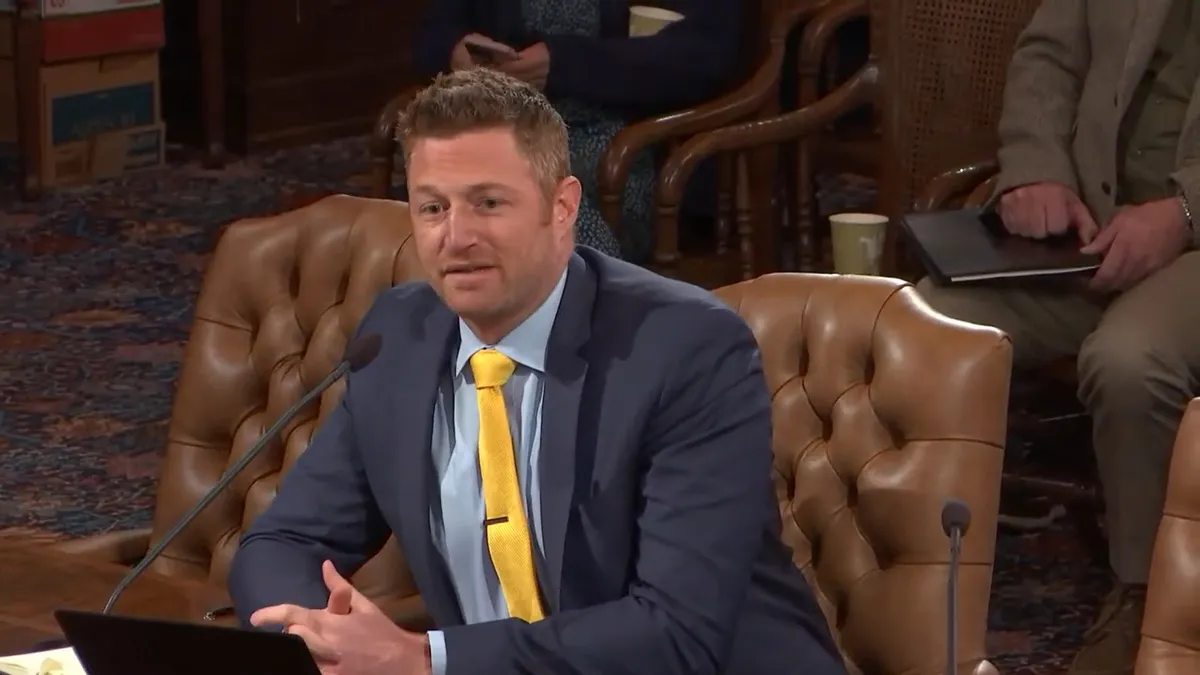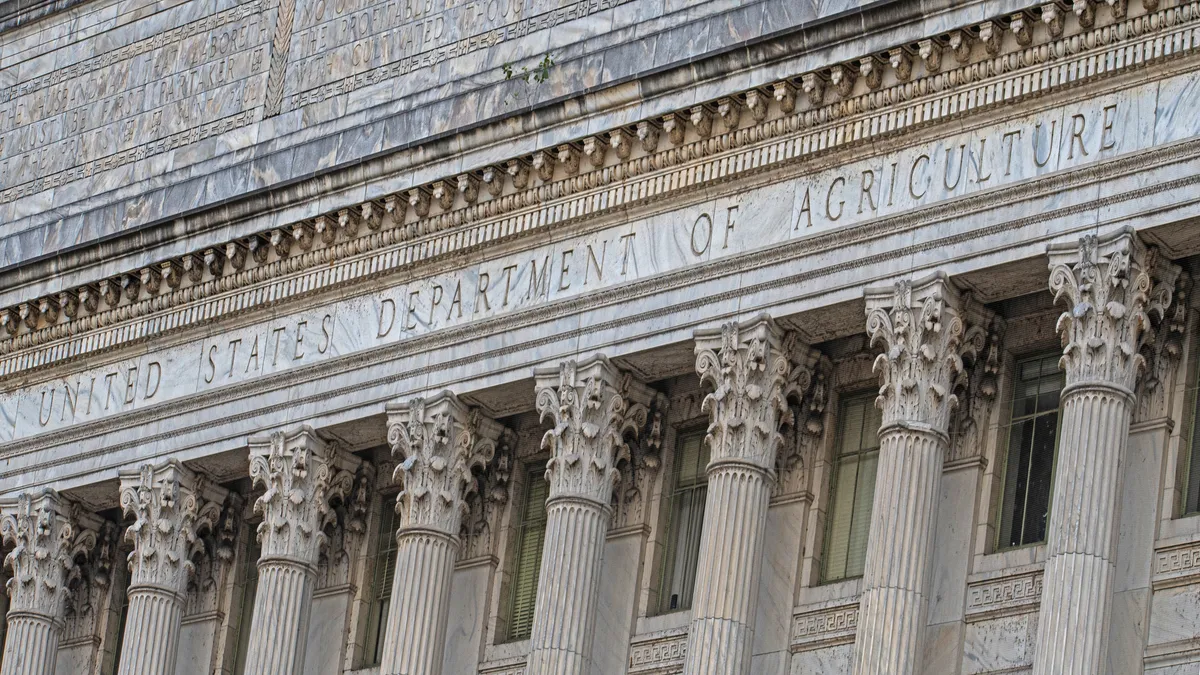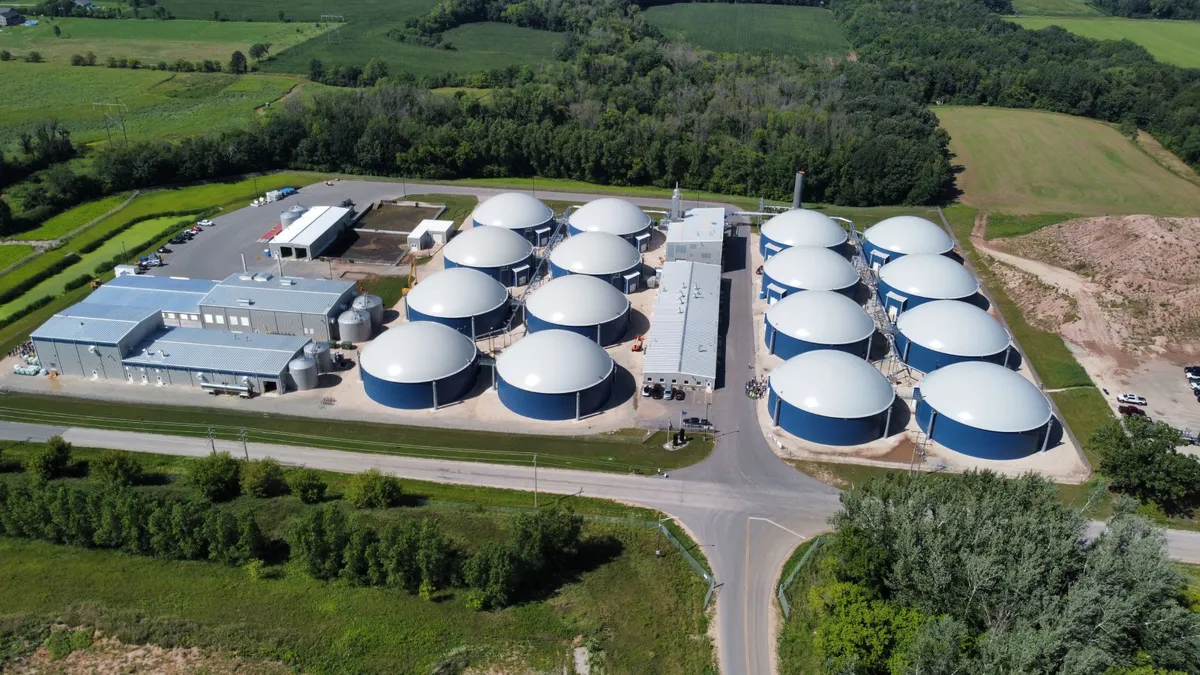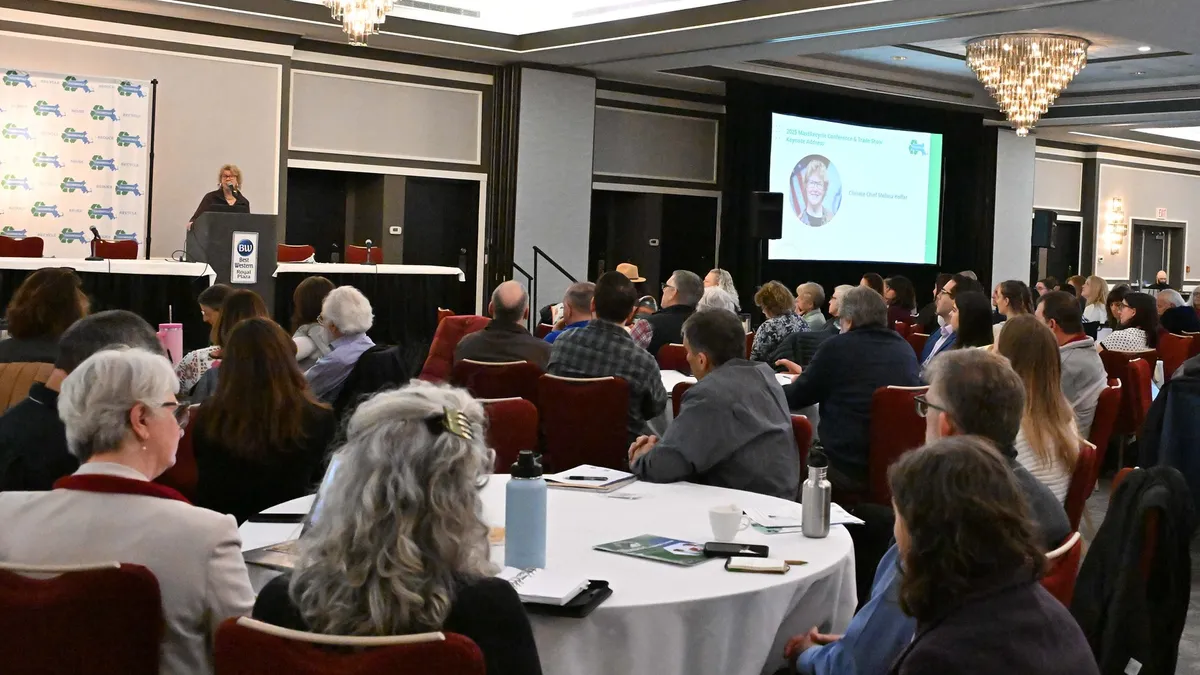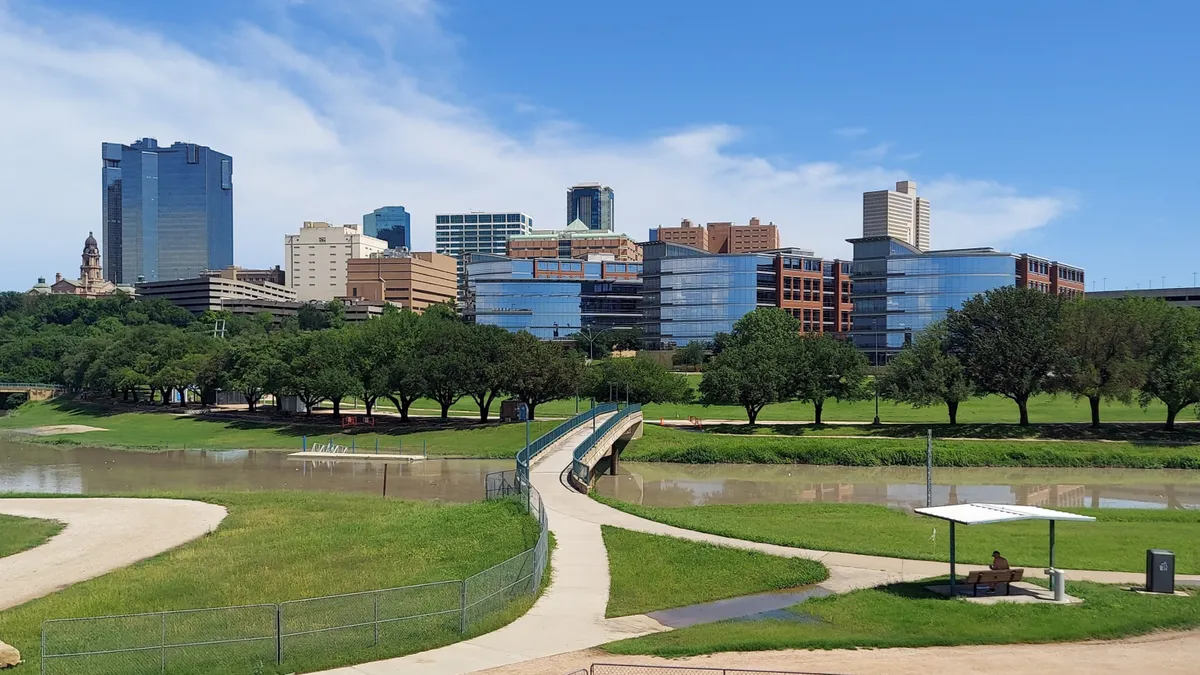California Gov. Gavin Newsom signed a pair of bills last week intended to fix complaints about SB 1383, the state's organics recycling law passed in 2016, and a third bill is poised to become law without his signature. The approved measures cap off a legislative session in which lawmakers approved a raft of changes to the state’s evolving organics regime.
SB 1383 enacted several deadlines that the state is not on pace to reach. It set goals to reduce the disposal of organic waste by 75% and increase the recovery of edible food by 20% by 2025, while reducing methane emissions 40% by 2030. Rather than change those goals, the legislature left the underlying SB 1383 implementation plan largely intact in the 2023 to 2024 session. It opted instead to pass laws loosening organics procurement and collection requirements and providing new assistance to composters.
Observers view those steps as a positive sign that officials would like to tweak the program to ensure its success, rather than abandon its ambitions.
“It reflects that the CA 1383 organics program is reaching an adolescent age,” said Nick Lapis, director of advocacy for Californians Against Waste. “We’re at the point where I think most stakeholders are committed to making it work, and that’s reflected in the bills.”
That commitment has not been guaranteed. Last year, a report from the Little Hoover Commission, a California state oversight agency, called for a pause on implementing SB 1383, allowing more time for education and for jurisdictions around the state to create local organics recycling systems. The commission warned that CalRecycle had an inadequate funding plan for the mandate and that jurisdictions, especially those responsible for rural areas, were flummoxed by shifting priorities and infrastructure challenges.
Yet the legislature never seriously considered a wholesale pause of the program, and provided a more targeted reprieve instead. One bill that Newsom signed, SB 2902, provides rural jurisdictions with an additional 10 years to comply with organics collection and procurement requirements. The jurisdictions now have until 2037, after which they can apply for continued exemptions.
Ethan Rarick, executive director of the Little Hoover Commission, said SB 2902 is “in a lot of ways in alignment with our position.” He said the commission hasn’t looked closely at implementation data since its report last year, so it’s hard to know if the state has made enough progress on SB 1383 to abandon the call for a pause.
Rarick said the intention behind the commission’s support for a pause was to ensure jurisdictions weren’t penalized for missing certain implementation targets while CalRecycle worked out issues. But he said ultimately, they want the program to succeed.
“It’s like you're running and you realize your shoe is untied and you want to tie your shoe. Do you stop running and tie your shoe? Yes, I think so. But if you can tie your shoe while you're still running, so much the better,” Rarick said.
Another bill, AB 2346, is also poised to give jurisdictions some flexibility in meeting their targets for procuring products made from organic waste. AB 2346 was passed by the legislature but so far has not been signed or vetoed by Newsom. It will automatically go into law if he does not act on the bill in the coming days.
The procurement requirement is intended to support the development of a market for recycled organic products and provide a destination for the organics that jurisdictions must collect. AB 2346 would allow new items to count toward a jurisdiction’s procurement target, including compost from smaller-scale community composting facilities, vermicomposting, mulch generated from cities trimming trees in parks, equipment for compost or mulch production and other items. It would also provide more flexibility for determining that target, which is based on population, by allowing jurisdictions to set a five-year procurement target rather than an annual target, among other tweaks.
Those changes will make SB 1383 requirements more adaptive to on-the-ground conditions, according to Timothy Burroughs, executive director of StopWaste, a joint powers authority in Alameda County. Burroughs said he also supports the law providing more flexibility to rural jurisdictions, which he said would respond to their “unique needs,” like greater distance between organic waste generators.
Burroughs said Alameda County has been ahead of the curve on setting up composting infrastructure of its own, and yet it also has some work to do to meet SB 1383’s ambition.
“I think over the past few years, local governments have been trying to figure out how to best channel these rules and regulations in a way that dovetails with our existing work and with our existing expertise,” Burroughs said. “From the state’s perspective, I think their goal is, ‘OK, how do we accelerate progress?’”
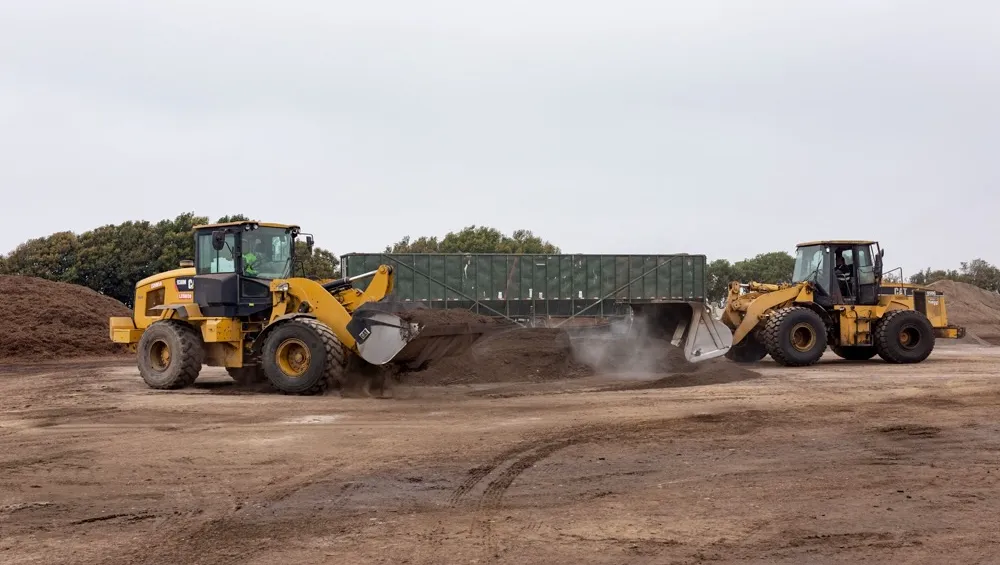
Composters are also expecting to get a leg up thanks to SB 1046, which Newsom signed this week. The law instructs CalRecycle to develop a programmatic environmental impact report for small- to medium-sized composting facilities, easing the legwork local governments have to do during the permitting process for such projects.
Bill Camarillo, CEO of composter Agromin, said his company works in some counties where the zoning code has no mention of composting, leaving regulators and private industry to start the process from scratch. In Ventura County, Agromin has been working to permit a composting facility since 2011, and Camarillo is now “hoping to put a shovel in the ground there this year.” He said the programmatic environmental impact report could cut permitting time in half — from 12 to 13 years to five to seven years.
“Permitting compost centers is no small feat, and it’s a very expensive consideration,” Camarillo said.
Several more companies, like Republic Services and Recology, have thrown their weight behind changes to SB 1383, including efforts to boost investment in new facilities. Fredrick Ghai, director of communications for organics recycler GreenWaste, also said in an emailed statement that the company was appreciative of “the State’s recognition of the barriers” to getting SB 1383-compliant composting facilities permitted. GreenWaste operates six total facilities in California, offering anaerobic digestion, mulching and composting services.
The legislature passed one bill to reform SB 1383 that Newsom vetoed. SB 972 would have instructed CalRecycle to provide more technical assistance to local jurisdictions implementing SB 1383, an ask that had previously appeared in the Little Hoover Commission’s report. The governor called the bill “unnecessary and duplicative of existing efforts” in a memo explaining his veto.
There are other things CalRecycle is doing to assist jurisdictions. Newsom highlighted its monthly SB 1383 roundtables and annual site visits to provide “customized assistance consistent with each jurisdiction's needs.” The state is also offering a proportion of its Greenhouse Gas Reduction Fund to projects that address SB 1383 requirements, according to Melissa Sparks-Kranz, a lobbyist for the League of California Cities.
Jursidictions will need all the funding they can get to meet SB 1383’s requirements — Sparks-Kranz said the cost associated with implementing SB 1383 has doubled since the law was first passed. She said a survey conducted by her organization also found that jurisdictions are increasing their solid waste fees by as much as 20% to account for the new requirements.
Sparks-Kranz said it’s “a bit of a challenge” to determine whether the state will meet its 2030 goal to reduce methane emissions in the face of those hurdles. But she’s confident that SB 1383 is here to stay.
“This is a part of city services now, and that's the biggest thing we can say: Our cities are very committed to progressing,” Sparks-Kranz said. “Regardless of whether we hit that target or not, we’re going to keep progressing.”









